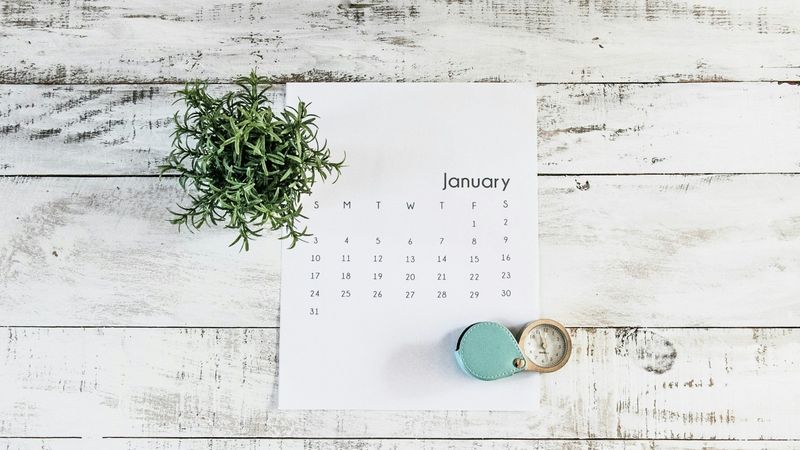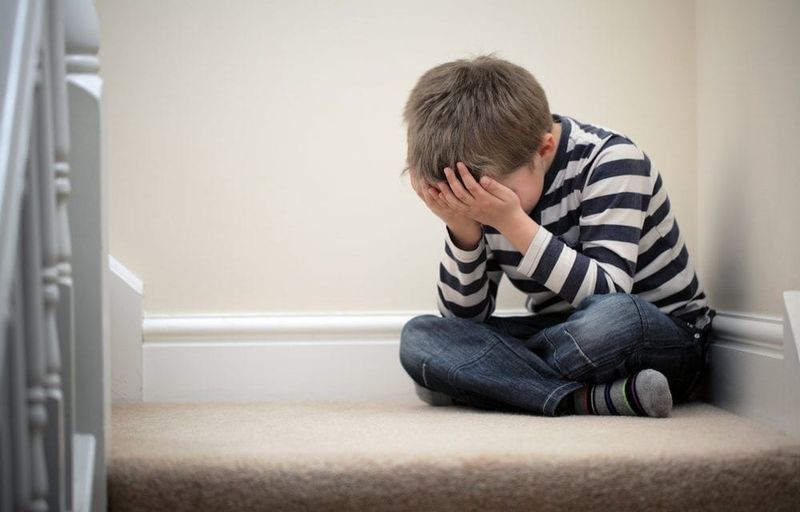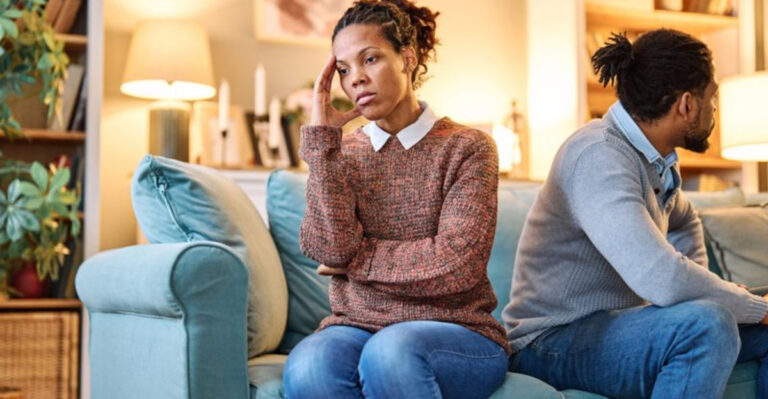13 Reasons Why Divorce Doesn’t Always Bring Relief, And 5 Mistakes That Make It Even Harder
There’s this idea that once the papers are signed and the boxes are packed, you’ll finally exhale. Like it’ll all click and you’ll be free. Lighter. Peaceful. Sometimes, that happens. But often? Divorce leaves a strange, lingering ache. A grief with no funeral. A freedom that feels… lonely.
Here are 13 deeply honest reasons divorce doesn’t always bring instant relief, plus 5 common mistakes that can stretch the pain longer than it has to.
1. You’re Grieving a Life You Thought You’d Have

Ever had your heart set on a certain dream, only to watch it unravel? That’s what divorce can feel like. It’s not just the end of a marriage—it’s the end of your plans, your in-jokes, your routines. Sometimes, you mourn anniversaries you’ll never reach or trips you never took.
Even when you know the relationship was broken, it’s still hard to let go of the life you imagined. You might find yourself missing the idea of happily ever after, even if it was mostly held together by hope and stubbornness.
Nobody throws you a party for grieving a future that didn’t happen, but it’s real. The ache can sneak up out of nowhere—at the grocery store, hearing your song, or seeing a family that looks the way you thought yours would. It’s grief, but with no closure.
2. Freedom Can Feel Overwhelming, Not Liberating

Everyone acts like being single post-divorce is some magical reset. But suddenly, you’re making every decision alone—big and small. It’s liberating, sure, but it’s also like being promoted without training.
Who changes the lightbulb? Who picks the insurance? Suddenly, it’s just you, and there are days when the quiet is deafening. Sometimes, even deciding what to eat for dinner feels like an impossible quiz.
You might find yourself wishing for someone else to handle the boring (and annoying) stuff. Freedom comes with a price: the weight of being the only adult in the room. At first, it’s exhausting, not exhilarating. And that’s completely normal.
3. You Miss the Familiarity, Even If You Don’t Miss the Person

It’s wild how you can miss the routines more than the person. Like the Sunday morning coffee, the way the house sounded when two people were home, or just knowing someone was there—even if you barely talked.
There’s a strange comfort in the familiar, even if it wasn’t always happy. That empty chair or silence after a shared joke that no longer lands? It all stings in quiet, unexpected ways.
You don’t want them back, but you crave the predictability. The little rituals, the inside jokes, and even the dumb arguments about what to watch—they all become ghosts in your daily life. The loss isn’t just about love; it’s about losing your normal.
4. There’s Guilt You Didn’t Expect

You swear you tried everything—counseling, compromising, late-night heart-to-hearts. But after the dust settles, guilt can sneak up on you. For the kids, for your family, even for yourself.
Did you try hard enough? Should you have stayed a little longer, fought a little more? It’s a relentless whisper: what if? Guilt doesn’t care if you know you did the right thing. It only cares about poking at your soft spots.
Even when you know the choice was right, the guilt can still be crushing. It’s a weight that lingers, especially when you see the impact on people you love. Sometimes, you just want someone to say, “You did what you had to do”—and mean it.
5. Money Stress Hits Like a Freight Train

Nobody warns you about the cost of starting over. It’s not just the lawyer bills or splitting everything in half—it’s the endless trickle of new expenses. Suddenly, every little thing adds up faster than you can say “alimony.”
Rent, utilities, groceries, and all those “just for now” purchases? They pile up. The reality is, you go from sharing bills to handling it all solo, and it can feel impossible some months.
There are moments when you’re proud of your independence, but also nights spent worrying about how to pay for the next field trip or fixing the car. The financial stress is relentless and nobody gives you a medal for simply keeping it together. That’s the harsh truth nobody puts on Instagram.
6. The Loneliness Isn’t Just Physical—It’s Emotional

Sure, your friends are a text away. But it’s the emotional loneliness that knocks the wind out of you. You could be surrounded by people and still feel like you’re living on an island.
Evenings are the toughest. There’s no one to ask how your day was, no shared sigh at the end of a long week. The silence in the house grows loud after a while, especially in the spaces you used to fill with conversation.
Some days, even social media can’t fill the gap. You scroll past smiling couples and families, and the ache comes back. It’s more than missing a person—it’s missing being known. That’s an ache that doesn’t just disappear overnight.
7. You Feel Like You Failed—Even If You Know You Didn’t

Society loves to remind us that marriage equals success. So when yours ends, it’s like wearing a scarlet letter, even if you know better. Some days, no matter how rational you are, the shame creeps in.
Walking away can feel like quitting, especially if your friends or family never saw the cracks. It’s a weird mix of relief and embarrassment—like you’re letting down some invisible panel of judges.
But here’s the wildest part: the failure isn’t yours to own. Sometimes, things just end. Period. Still, you might find yourself apologizing for moving on, or bracing for people’s reactions, even when you know you did the right thing.
8. You Start to Question Your Own Judgment

Second-guessing becomes a hobby after divorce. You start to wonder: What did I miss? Did I ignore red flags? Did I stay too long?
It’s exhausting how your brain will replay every conversation, every decision, trying to pinpoint where things went sideways. Doubt creeps in, not just about your marriage but about everything—work, friendships, even grocery store choices.
It’s all part of the process. Self-trust takes a hit, but it slowly returns. Every day is a chance to build it back up, even if you have to fake it for a while. Eventually, you realize nobody has it all figured out—least of all those who pretend they do.
9. You Might Still Love Them (Or Miss Who You Thought They Were)

Love isn’t an on/off switch. Just because you’re divorced doesn’t mean the feelings disappear on cue. Sometimes, you miss the person your ex used to be—or the one you hoped they’d become.
It’s confusing, and honestly, it can make you question your sanity. There are days when you remember the good moments and feel a pang of longing, even if you know things were never perfect.
No one tells you that missing your ex is normal, even healthy. Grief comes in waves, and it’s okay to feel love alongside anger, sadness, or relief. Emotions get tangled after divorce, and that’s nothing to be ashamed of.
10. There’s a Strange Void Where Future Plans Used to Be

You don’t just lose a partner—you lose all the plans you made together. Birthdays, holidays, vacations, retirement dreams—they’re suddenly erased or rewritten. It’s unsettling to face a calendar without those shared milestones.
The future becomes a giant question mark. Every empty square on the planner is a reminder that you’re starting from scratch. That can be scary and lonely at the same time.
It takes a while to find excitement in new possibilities. For now, it’s okay to mourn the trips you never went on and the goals that vanished. Planning for yourself is a new skill, and you’ll get there—even if it feels awkward.
11. You See Them Move On Before You’re Ready

Social media can be a special kind of torture post-divorce. There’s your ex, suddenly living their “best life,” posting cheesy smiles with new friends or dates. It’s a punch in the gut, even if you have zero interest in going back.
You’re happy for them—sort of. But seeing someone else move on when you still feel stuck or raw? It stings every time. You start wondering if you’re falling behind or if your pain is taking too long.
The truth? Healing isn’t a competition. Their journey is theirs, yours is yours. Still, it’s okay to mute, unfollow, or take a break until you feel steadier.
12. Your Kids Feel It Too—and That Breaks You

Kids are like emotional sponges. They pick up on every sigh, every tense silence, every change in the air. Seeing sadness in your child’s eyes? That’s a heartbreak you never get used to.
You want to fix it all, to shield them from the fallout. But kids feel the loss and confusion in their own ways. Sometimes they act out, sometimes they grow quiet, and it’s gutting to watch.
You do your best, but there are days when nothing feels like enough. The guilt and sorrow swirl together and it’s hard not to blame yourself. Just remember: loving them through it is what matters most.
13. Healing Isn’t a Straight Line

Some mornings, you wake up feeling almost normal. Then one old song, one whiff of familiar cologne, and you’re right back in the thick of it. Healing is messy, unpredictable, and never happens on a schedule.
People expect you to “move on” quickly, but the truth is, grief has its own timeline. There will be setbacks, triggers, and days when you think you’re back at square one.
That doesn’t mean you’re failing. It means you’re healing. Progress isn’t a straight line, but a zigzag path with plenty of detours. Take every tiny win—and don’t rush the rest.
14. Jumping Into a New Relationship Too Fast

The urge to fill that loneliness gap? So real. But there’s danger in rushing headlong into a new relationship just to avoid being alone. Sometimes, a fresh romance feels more like a distraction than a solution.
You end up comparing, overthinking, or dragging old baggage into a new connection. The result? Even more confusion and heartbreak. Taking the time to heal and figure out who you are outside of marriage matters way more than finding a warm body for Friday nights.
It’s not about “waiting the right amount of time”—it’s about giving yourself room to breathe. Otherwise, you risk repeating the same cycles, wrapped in a new package.
15. Pretending You’re Fine When You’re Breaking Inside

Putting on a brave face is exhausting. You show up, crack jokes, act like everything’s fine—meanwhile, inside you’re quietly falling apart. Vulnerability feels scary, but it’s a vital part of real healing.
Acting “strong” all the time is a trap. It keeps you from finding true support, and it actually makes the loneliness worse. Friends can’t help if they don’t know what’s really going on.
Letting your guard down doesn’t make you weak. It gives your pain some air and helps you find your people—the ones who can handle the messy, unfiltered version of you. And that’s the real kind of strength.
16. Using Your Kids as Emotional Support

Kids should never have to carry grown-up heartbreak. But it’s easy to lean on them when you’re feeling raw and alone. Kids pick up on way more than we realize, and the weight of your sadness can stick to them.
It might feel comforting in the moment to share your fears or frustrations with your children, but it leaves them feeling responsible for your happiness. That’s an unfair burden to place on small shoulders.
The real work? Finding a safe adult to lean on—friend, therapist, sister—anyone but your kids. They need you to be their steady anchor right now, not a shipwreck they have to rescue.
17. Ignoring Your Own Needs While “Powering Through”

You get caught up powering through. Grocery shopping, school runs, working late—it piles up quick. Next thing you know, you’re running on fumes, skipping meals, and forgetting what “self-care” even means.
It’s tempting to keep going until you crash, but that’s no way to heal. Rest matters. Eating matters. Breathing and giving yourself space to feel, to fall apart, to just be—a thousand times more important than keeping up appearances.
You spent years taking care of someone else. Now, it’s your turn. You deserve the same care and attention you gave to your marriage. Don’t let exhaustion be your only companion.
18. Measuring Your Healing Against Someone Else’s

Healing isn’t a competition, but it’s easy to forget when you see your ex (or anyone else) moving on at lightning speed. Suddenly, you’re questioning your own progress. Why does it feel so slow? Why aren’t you “better” yet?
There’s no prize for bouncing back the fastest. Your pace is yours alone, and it’s perfectly okay to take your time. Comparing your journey to someone else’s only adds unnecessary pain.
You’re not falling behind—you’re just healing in your own way. The best thing you can do is focus on what you need, not what looks good on Instagram. Healing is personal, not performative.







